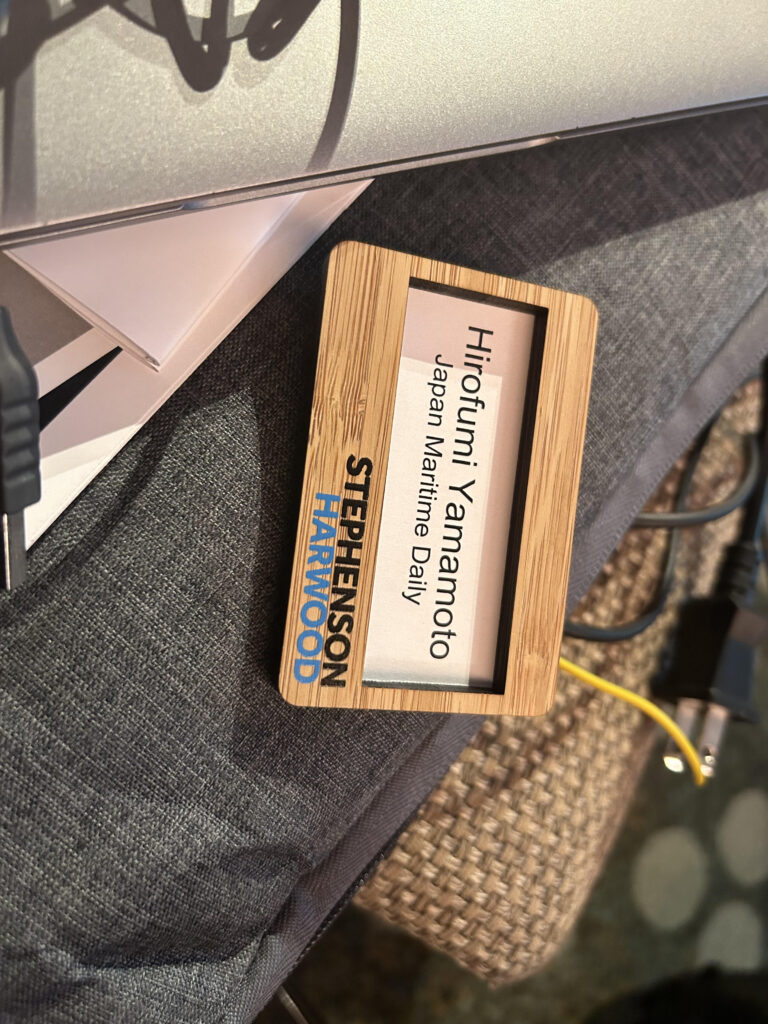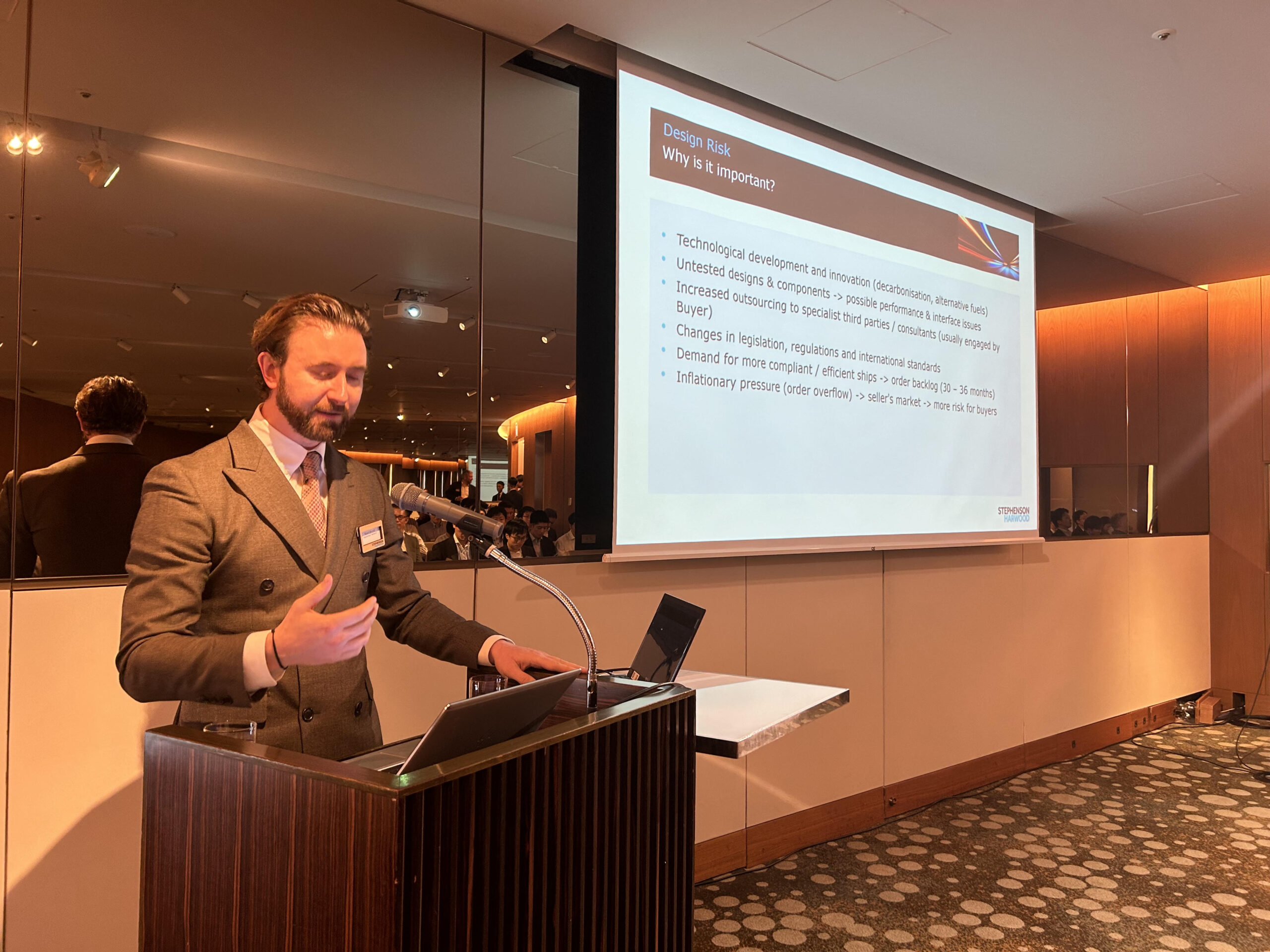The London-based law firm, Stephenson Harwood, hosted the seminar “The Shipping News: Tokyo Edition” on June 27, 2024, at the Roppongi Hills Club in Minato-ku, Tokyo. This event is the first following the relaunch of the new Marine, Trade, and Off-shore Group of the law firm. Similar events were held in February 2023 and before the COVID-19 pandemic.
Based in London, the UK law firm Stephenson Harwood held the seminar titled “The Shipping News: Tokyo Edition” on June 27, 2024, at the Roppongi Hills Club in Minato City, Tokyo. The firm, which has over 200 partners and a global presence, brought together six of its maritime law attorneys and consultants to discuss key challenges in the shipping industry. These challenges included adapting to new fuels, attacks on merchant ships in the Red Sea, and the EU-ETS. They emphasized the importance of understanding the design risks and legal issues related to new fuel and gas vessels. This seminar marked the first time the firm has held an event of this kind in Japan.
(Text by Hirofumi Yamamoto)
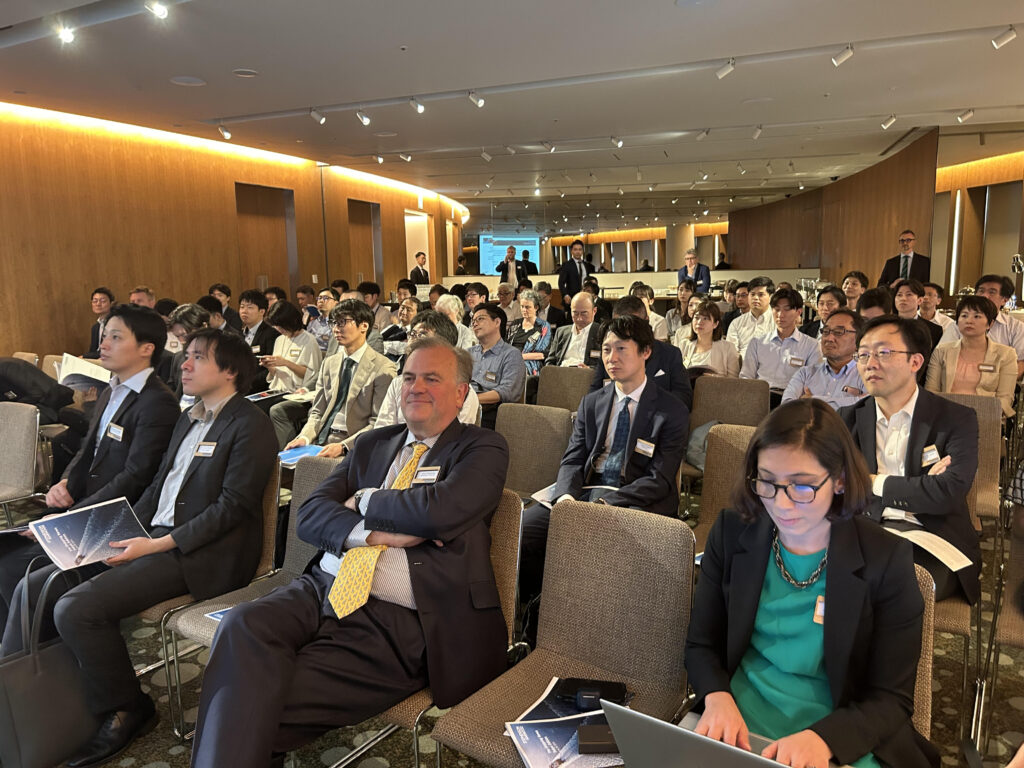
Stephenson Harwood, a law firm with offices in Asia, Europe, and the Middle East, organized this seminar to demonstrate its deep commitment and understanding of the Japanese market. Around 100 participants, including shipowners, P&I clubs, insurance companies, operators, and Japanese maritime lawyers, attended the event.
■Boil-off Gas
The first speaker, partner Stuart Burrell, focused on geopolitical risks, liability limitations, and technical challenges in the offshore industry. Burrell emphasized the growing importance of design risks and legal issues in contracts. He specifically highlighted the need to be cautious of potential delays and additional costs arising from untested technologies. Burrell also stressed the importance of clear contractual language to protect buyers and the negotiation of design and performance guarantees.
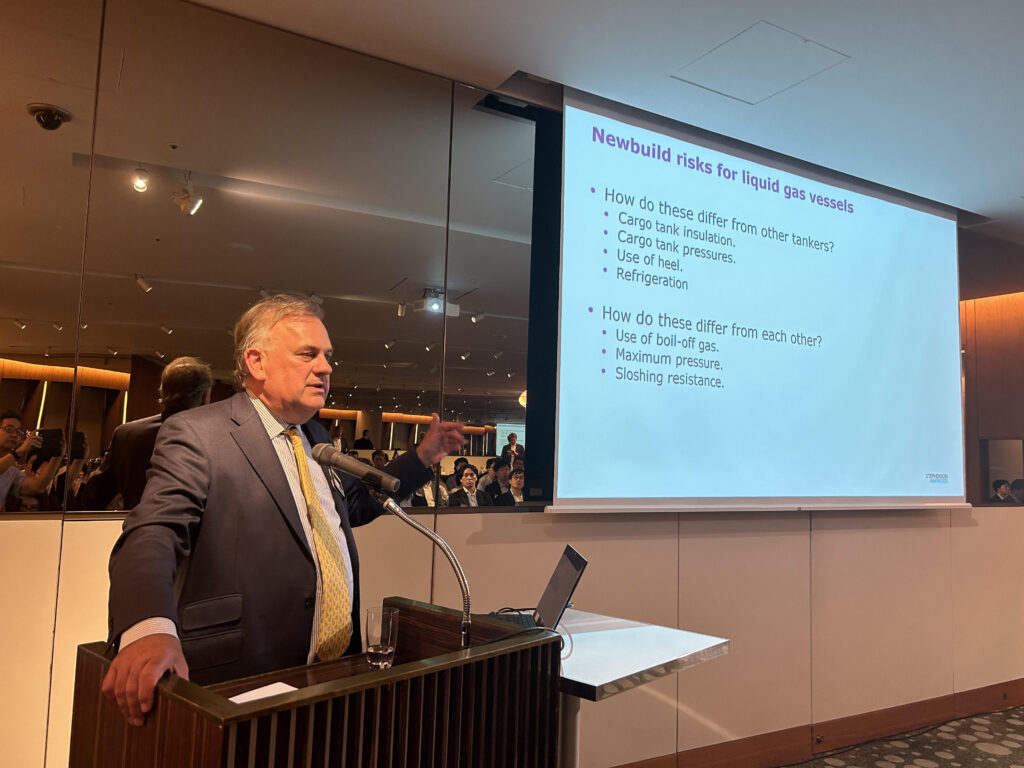
Following Burrell’s presentation, consultant Stuart Beadnall explained the unique designs and handling requirements of various types of liquid gas carriers. He discussed boil-off gas management in LNG (liquefied natural gas) transportation.
Beadnall also covered LPG (liquefied petroleum gas), including propane, ethane, and methanol, and delved into the legal aspects of shipbuilding contracts involving liquid gas fuels and chemicals.
Furthermore, Beadnall emphasized the necessity for buyers to take minimum steps such as due diligence and familiarization with the design before entering into contracts.
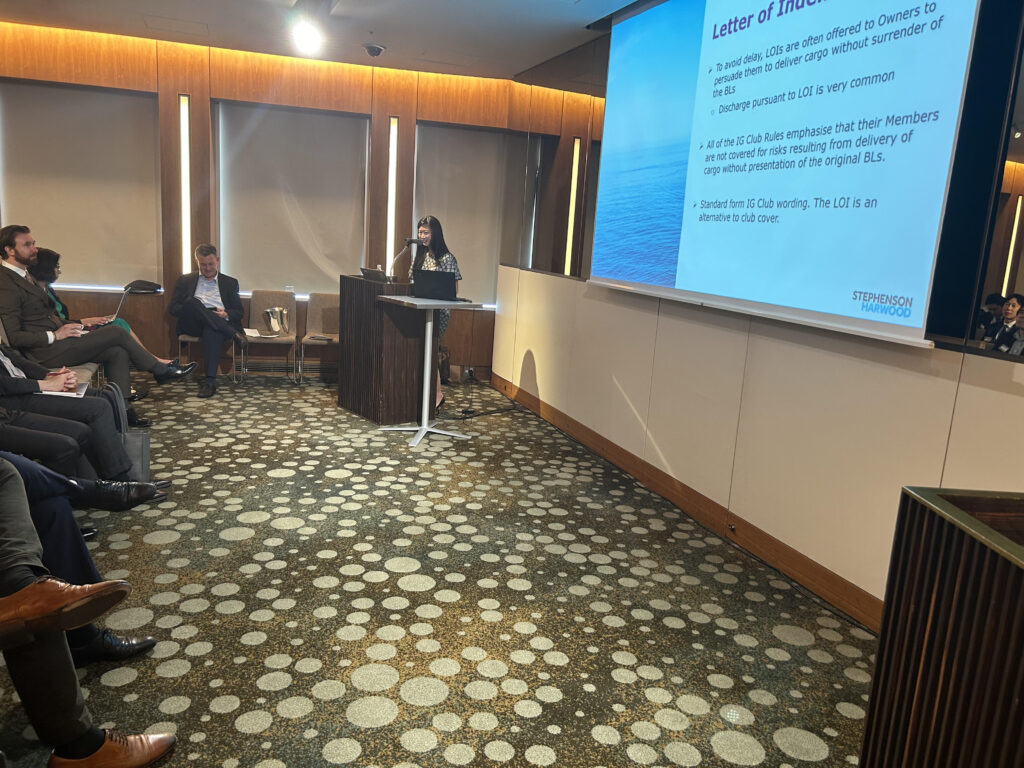
Issues with European Regulations
The seminar also covered other hot maritime topics.
One speaker discussed maritime law disputes related to bills of lading (BL), including cases of arrest, indemnity, defenses, and litigation between banks and shipowners.
There was also a presentation on the recent attacks on merchant ships in the Red Sea. Kirsty MacHardy, Partner and Head of Transportation & Trade, Maritime and Offshore, highlighted how geopolitical risks, particularly sanctions, piracy, and trade issues, are increasingly significant in shipbuilding contracts.
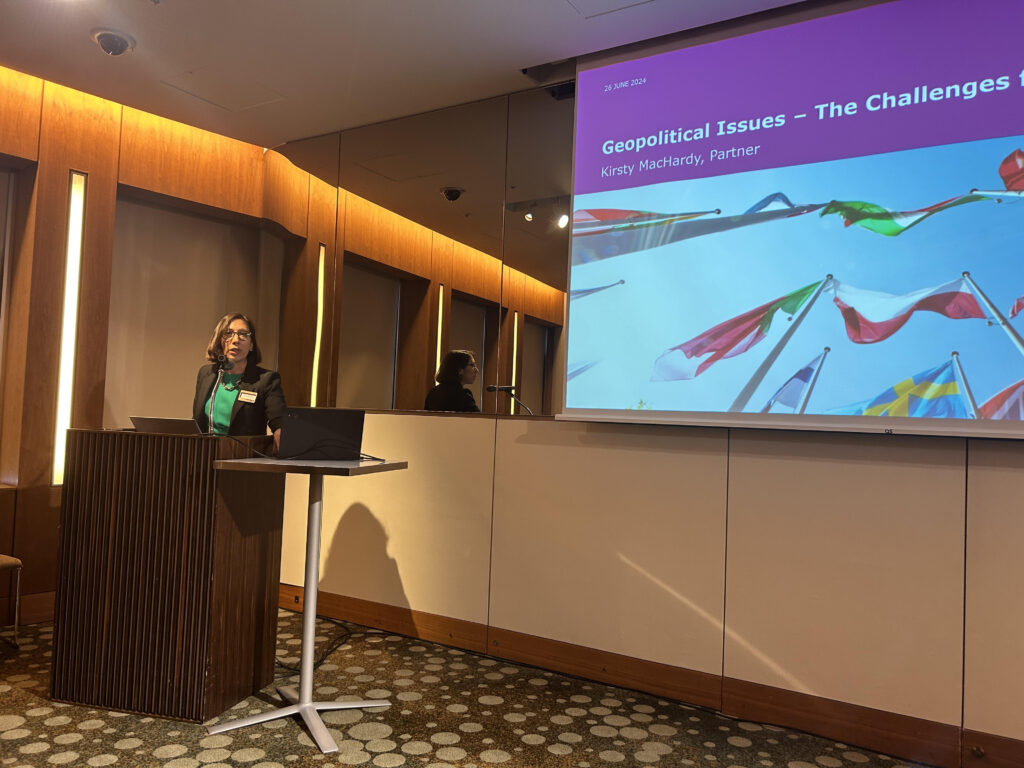
The final speaker, partner Andrew Rigden Green, explained the EU-ETS scheme and its impact on the maritime industry. Green described the EU as the epicenter of decarbonization efforts and emphasized the complexities of the EU-ETS and the necessity for alternative fuels. He pointed out the challenges in complying with these regulations.
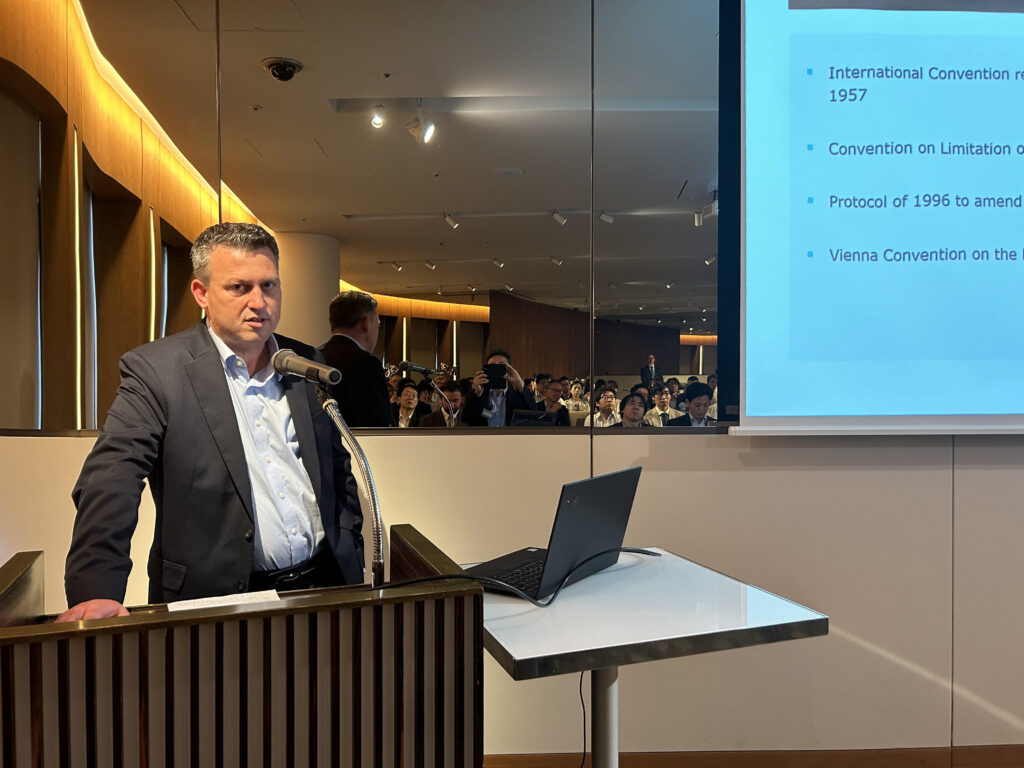
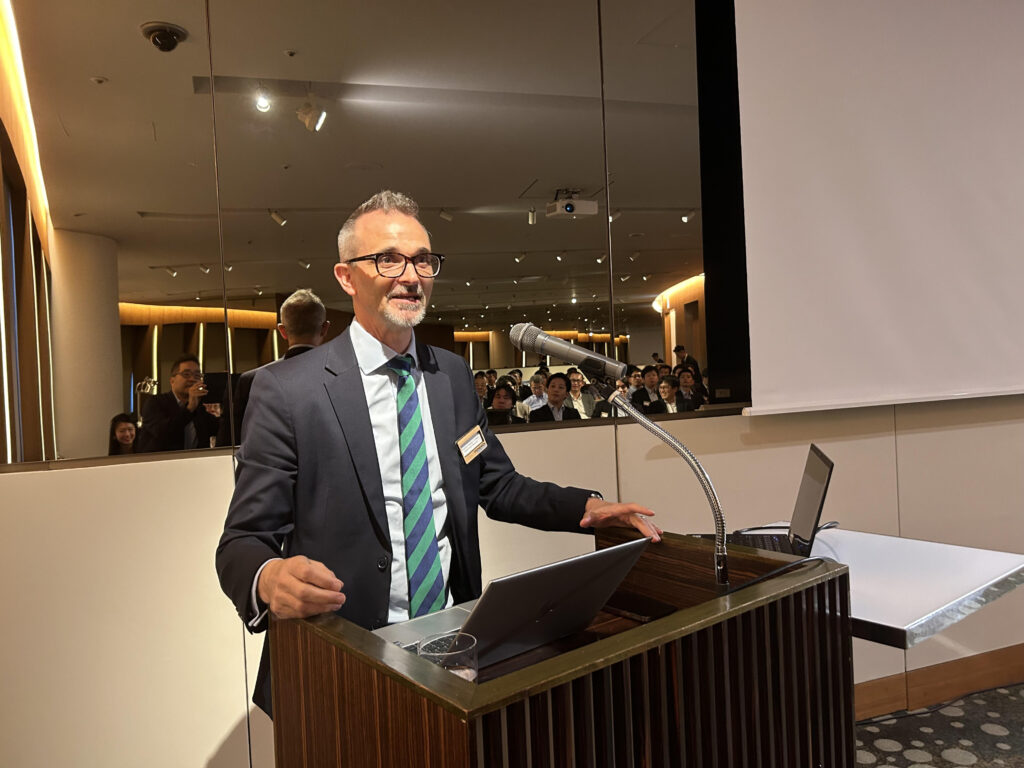
■ Seminar Attracts Legal Professionals in Japan
The seminar by Stephenson Harwood attracted legal professionals, including Japanese maritime lawyers and insurance company representatives. In an industry where commercial approaches dominate most seminars, Stephenson Harwood’s event was received as a refreshing change by Japanese legal professionals, providing valuable insights into the legal aspects of maritime issues.
